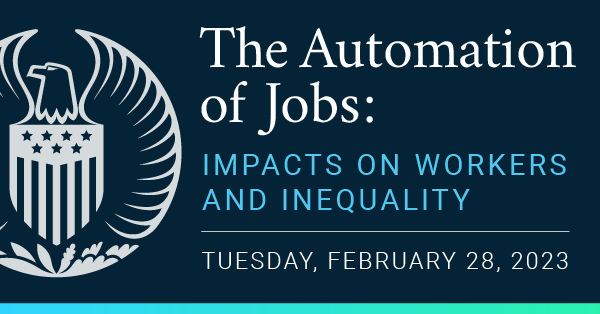The Automation of Jobs: Impacts on Workers and Inequality

The Automation of Jobs: Impacts on Workers and Inequality
The COVID-19 pandemic has significantly impacted the American labor force, accelerated automation, and exacerbated pre-existing economic inequities. On Tuesday, February 28, the Economic Mobility Project at the Federal Reserve Bank of Chicago hosted a webcast examining how automation and job displacement impact racial and gender inequality. This event highlighted research that examines automation’s impact on wages, considers the broader implications of automation for global economics, and analyzes the potential interplay of automation with recent developments in artificial intelligence.
Policy Briefs
The webcast featured research presentations by Economic Mobility Project Director, Kristen Broady, and Chicago Fed Vice President and Director of Microeconomic Research, Kristin Butcher, followed by a roundtable discussion with: David Autor, Ford Professor of Economics at the Massachusetts Institute of Technology, Allison Dembeck, Vice President of Education and Labor Advocacy and Government Affairs at the U.S. Chamber of Commerce, Juan Salgado, Chancellor of the City Colleges of Chicago and Thomas Hudson, President of Jackson State University. The discussion was moderated by Kate Bahn, Director of Labor Market Policy and Chief Economist at the Washington Center for Equitable Growth.











